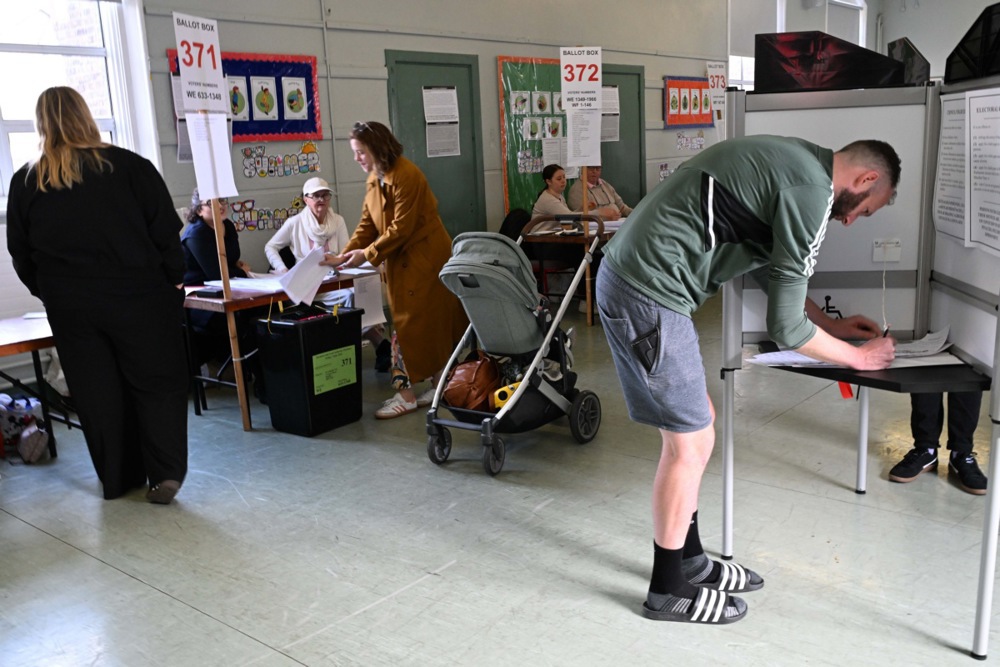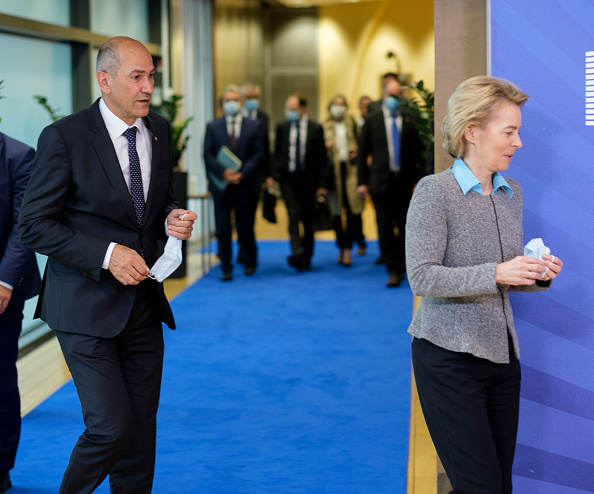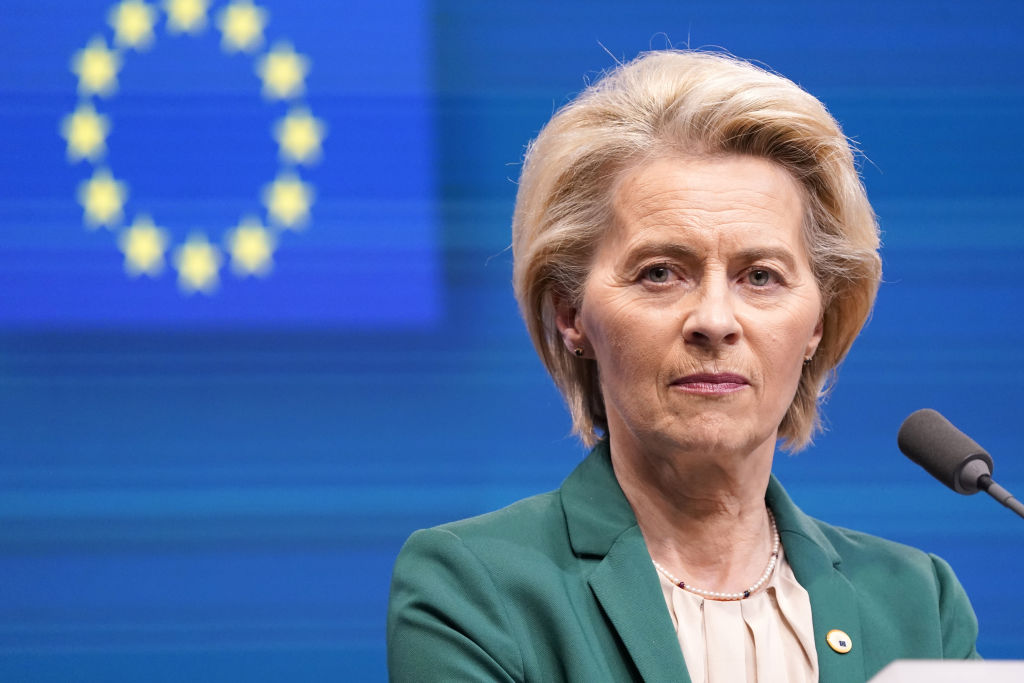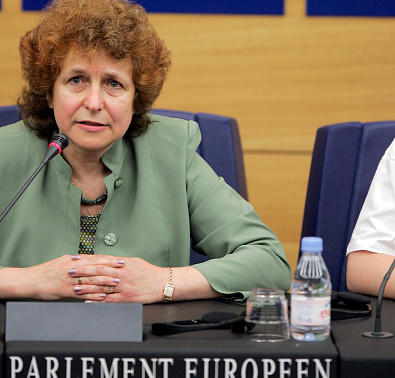Men’s fashion bloggers and former MEPs have told Brussels Signal of their dismay at what they see as the standard of menswear declining faster in the European Parliament than elsewhere.
Ireland, a country of 5 million, has nonetheless seemed to have produced two of the EP’s most intriguingly dressed examples.
Luke “Ming” Flanagan, an MEP since 2014 who has been re-elected twice since by the Irish Midlands–North-West constituency, attended his first session that year in a Ballyfin Athletics Club T-shirt sporting the words “Deadman’s Dash” on the front, a reference to a charity run.
In 2020, he attracted the new moniker of “Ming the Trouserless” when, during lockdown, he appeared at a virtual session of the European Parliament wearing, again, a shirt–but, it appeared, nothing else.
“Gazing into the camera while you sit on a bed with no trousers on might, in another context, arouse certain expectations”, wrote British daily The Guardian at the time.

In the case of Mick Wallace, an Irish MEP from 2019 to 2024, it was not so much that he chose generally to wear T-shirts to EP sittings, it was the state of the shirts themselves: The Irish Times suggested one of his favourites, a peacock-blue number, “suggests hospital scrubs worn for too long in a brutal war zone.”
To be fair to Wallace, his political wardrobe for debates also spanned football jerseys and grey sleeveless vests as well. In a nod to global warming, Irish journalist Richard Chambers wrote: “It’s too hot for Mick Wallace to wear sleeves in Parliament.” The current affairs programme RTÉ Today even ran an entire show titled: Should Mick Wallace Tidy Up?

Jean-Luc Mélenchon, by contrast, offers an example of an MEP who wears suits, just ones that fit badly: too high a high buttoning point “truncates the lapel line and reduces the amount of suppression you can put into the jacket’s waist,” said popular menswear writer Derek Guy.

And while one of Guy’s main rules of menswear was: “If your clothes fit, you’ll look great,” another French MEP, Bernard Guetta, offered examples of suits that appeared more to be wrapped around him, rather than tailored to a particular body shape.

Germany’s MEP Andreas Gluck has worn a scarf to European Parliament meetings but if one is going to wear a scarf, go all out, said Guy: “Along with being cosy, large scarves add visual interest because they’re big enough to fold in interesting ways.”
Politicians generally dress no better than their constituents because, it seems, as a society we have forgotten to dress and there is no one left to remind us, Guy told Brussels Signal.
“We see politicians everywhere dress worse, simply because we don’t have informed sales staff to help them, or tailors who can alter or make things correctly,” he said.
So it could be argued MEPs’ worsening standards of dress reflects, more obviously, a decay in those standards in society generally.
“Generally speaking, yes, dress standards have mostly fallen everywhere with regard to tailored clothing simply because there are fewer tailors and informed salespeople,” Guy said.
“A hundred years ago, this was a much more bustling trade and a person could just go to their local tailor’s shop and be taken care of. Now, it takes a lot of effort on the consumer’s part,” he added.
There are still tailors left in Brussels and Strasbourg but not all have found things straightforward
Strasbourg tailor Xavier Hedoire told Cafe Babel the city was only “the City of Suits” seven days a month and it was hard to find clients who come back regularly.
Whereas in Brussels, a Reddit user posted in May 2024 about one of the city’s best-reviewed tailors: “If this is what passes for a good tailor in Brussels, I despair. I went here and had the worst experience I’ve ever had at a tailor. ”
One article by Mace profiled Nicola Martorana, the “discreet Sicilian tailor whose bespoke attire is worn by everyone from Michel Barnier … to the lobbyists and lawyers of Brussels.”
Since 2006, he has visited Brussels every three weeks for fittings with “commissioners, heads of state and members of the European Parliament,” apparently.
Martorana briefly ran a tailor’s shop near the European Commission’s buildings, which helped him attract clients such as former European Commission president Romano Prodi, who was known for his sober, dark, well-fitting suits.

But Martorana found the European Quarter a difficult place to set up as a tailor: “A working area – not a shopping area – and soon we decided to close it,” he said.
Former MEP Annunziata Rees-Mogg told Brussels Signal of the menswear from her time in the European Parliament, saying; “The only one I remember was Berlusconi,” who served two periods as an MEP, and “whose costume seemed to involve at least six models over 5’10.”





